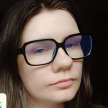Harpooned: A Life Altered by Moby-Dick
Sailing the Uncharted Waters of Existence Through Melville's Magnum Opus

Herman Melville's Moby-Dick, a gargantuan tapestry of metaphysical inquiries, psychological entanglements, and societal critiques, cunningly woven into the narrative of a perilous whaling voyage. This is not just a book; it is a philosophical universe compressed between two covers. How it has shaped my life and altered my existence is a journey worth recounting.
Before diving into the depths of Moby-Dick, I swam in shallow literary waters. My reading life was populated with straightforward narratives and unchallenging prose. Melville's epic, however, was not a book to be skimmed; it demanded to be dissected, to be ruminated upon. This was my first brush with a text that didn't just invite interpretation—it required it. From the onset, I was both the hunter and the hunted, captivated by its complexity yet invigorated to capture its profundity.
I encountered Captain Ahab, a man enshrouded in a maelstrom of obsession and ego, and I saw not a stranger but a mirror reflecting the darker corners of my own psyche. The captain's relentless pursuit of the white whale was akin to my own insatiable search for meaning, often at the expense of all else. My identification with Ahab was not just a character study; it was an epiphany. I realized the potential havoc one's obsessions could wreak, not only externally but internally, gnawing at the very core of one's being.
The captain's relentless pursuit of the white whale was akin to my own insatiable search for meaning, often at the expense of all else.
Ishmael, the ever-perceptive observer, became my literary confidant. Through his eyes, I learned the richness of a pluralistic perspective, the beauty of the micro within the macro. Ishmael taught me to relish in the details of the world—to find the cosmos in a speck of ocean spray. He made me more aware of my own myopia, encouraging me to step back, to see the grander mosaic of life.
But beyond the characters and the narrative, Moby-Dick revolutionized my approach to reading itself. No longer was literature merely a source of entertainment or escapism; it had become a catalyst for introspection. My psychology degree equipped me with the tools to delve into the behavioral and cognitive facets of Melville's characters, but the text itself became a case study for my own mental ruminations. I realized that every book is a Rorschach inkblot, waiting to be interpreted, waiting to reveal secrets about its reader.
The enigmatic layers of Moby-Dick propelled me toward other classics, fostering a newfound reverence for works that swam in similar depths. Be it Dostoevsky's Crime and Punishment or Conrad's Heart of Darkness, the lens through which I engaged these texts was forever marked by Melville's ink. I found myself weaving intricate psychological tapestries that linked Raskolnikov's tormented soul with Ahab's self-destructive monomania or Kurtz's journey into the abyss. Moby-Dick became the cornerstone of my intellectual edifice, granting me the capacity to engage with other works in a dialogue that transcended time and space.
The lens through which I engaged these texts was forever marked by Melville's ink.
The book acted as a catalyst in my social interactions as well. Once a somewhat reticent individual, hesitant to delve into existential or controversial subjects, Moby-Dick gave me the lexicon and the courage to steer conversations into uncharted waters. Be it at intellectual gatherings, or during intimate discussions with close friends, I found myself invoking Ishmael's wisdom or challenging others with Ahab's monomaniacal quandaries. The book became my intellectual talisman, providing me with the linguistic weaponry to confront the intimidating white whales of societal norms and expectations. Like Queequeg's tattoos, my conversations became adorned with deeper meanings, intricate nuances, and beguiling perplexities.
So here I am, irrevocably changed, swimming in the uncharted waters of human existence with Melville as my compass. I've become more introspective, more analytical, and infinitely more captivated by the complexities of the human psyche. Moby-Dick did not just add to my bookshelf; it altered the very lens through which I perceive the world and myself. It's no hyperbole to say that the book harpooned me as much as I harpooned it, and for that, I am eternally captivated.
YOUR TURN: Tell me about a book that has changed your life!
If you found this post interesting or useful, please consider leaving a heart ❤️, comment or even a tip. Your support means so much to me as a writer! You can read more from me here, or gander at a few articles listed below! Thank you again!
About the Creator
Margaret S.
I'm Margaret, a U.S.-based literary critic with a Psych degree. In my posts, I don't just ask 'whodunit,' I explore 'whydunit.' Melding classic lit with modern mystery, I turn each page into a psychological exploration. 📚✨






Comments
There are no comments for this story
Be the first to respond and start the conversation.